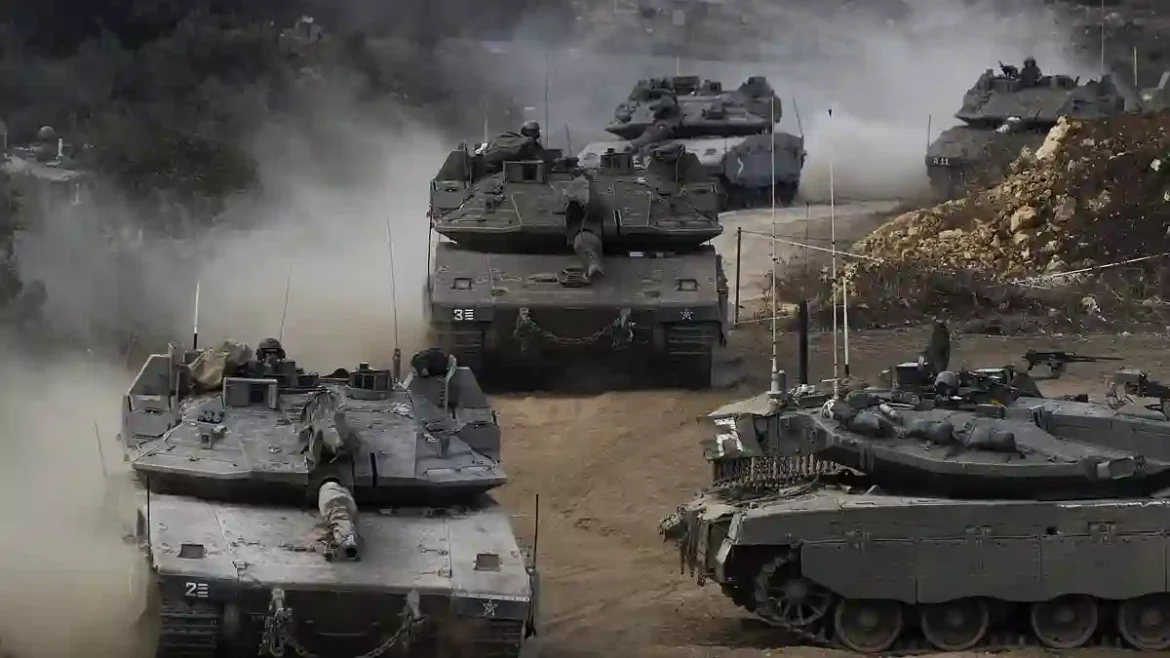The situation in the Middle East has reached a critical point, prompting the United States to issue a stark warning to Iran regarding any potential attacks on Israel.
With thousands of American troops deployed to the region, there are rising concerns that the ongoing conflict between Israel and Hezbollah in Lebanon could spiral into a full-blown regional war.
Military Reinforcements on Standby
To strengthen its military presence, the US is deploying fighter jet squadrons, including F-15E and F-16 jets, which previously played a vital role in countering Iranian drone attacks against Israel.
Additionally, advanced F-22 jets and A-10 warplanes are being sent, while the USS Abraham Lincoln aircraft carrier is stationed in the Gulf of Oman, with the USS Harry S. Truman en route as part of a planned deployment.
The Pentagon announced that a few thousand more American troops would be moved to bolster the security of the approximately 40,000 already stationed at bases in Iraq, Syria, and other locations.
Diplomatic Efforts to Contain the Conflict
In an effort to prevent the situation from escalating further, the Biden administration is urging Israel to limit the scope of its military actions.
Recent overnight reports indicate that Israel has engaged in targeted ground raids against Hezbollah in southern Lebanon, citing an immediate threat to its northern communities.
US Defense Secretary Lloyd Austin expressed support for Israel’s right to defend itself during a recent conversation with Israeli Defense Minister Yoav Gallant, emphasizing the need to dismantle infrastructure that could facilitate attacks on Israel.
Consequences for Iran
Austin did not shy away from warning Iran about the potential repercussions of a direct military attack on Israel, stressing that the US would take necessary measures to protect its personnel and interests in the region.
He stated, “Should Iran, its partners, or its proxies target American personnel or interests in the region, the United States will take every necessary measure to defend our people.”
Israeli Prime Minister Benjamin Netanyahu also issued a warning to Iran, asserting that there is “nowhere in the Middle East Israel cannot reach.”
Hezbollah’s Response and Future Uncertainty
Hezbollah’s leadership, meanwhile, has declared readiness for a prolonged conflict.
Acting leader Naim Kassem has asserted that the group is prepared for war, indicating that their fighters and slain commanders have already been replaced.
The response from Iran remains uncertain, with officials divided on potential next steps.
While a repeat of the massive missile and drone barrage from April is one possibility, analysts believe Iran may hold back unless they assess a higher probability of success.
Ongoing Violence and Humanitarian Concerns
As violence continues to erupt along the Lebanon border, Israeli officials are reportedly frustrated with US and Israeli Defense Forces’ plans, which were leaked prior to the targeted incursion against Hezbollah.
President Biden acknowledged the situation when asked about operational plans, suggesting a ceasefire might be prudent.
The Israeli government, however, has vowed to persist in its objectives, with Netanyahu declaring, “If you strike us, we will strike you.”
The situation remains dire, as Hezbollah has vowed to continue firing rockets into Israel until there is a ceasefire in Gaza.
Since the outbreak of conflict on October 8, nearly daily exchanges of fire have been reported.
The ongoing Israeli ground and air attacks have resulted in significant casualties, with the Gaza health ministry reporting over 40,000 Palestinians killed.
Amid these developments, families of hostages abducted from Israel are becoming increasingly concerned as attention shifts away from the plight of their loved ones.
The question now looms: what lies ahead for the region?
Mine Crypto. Earn $GOATS while it is free! Click Here!!